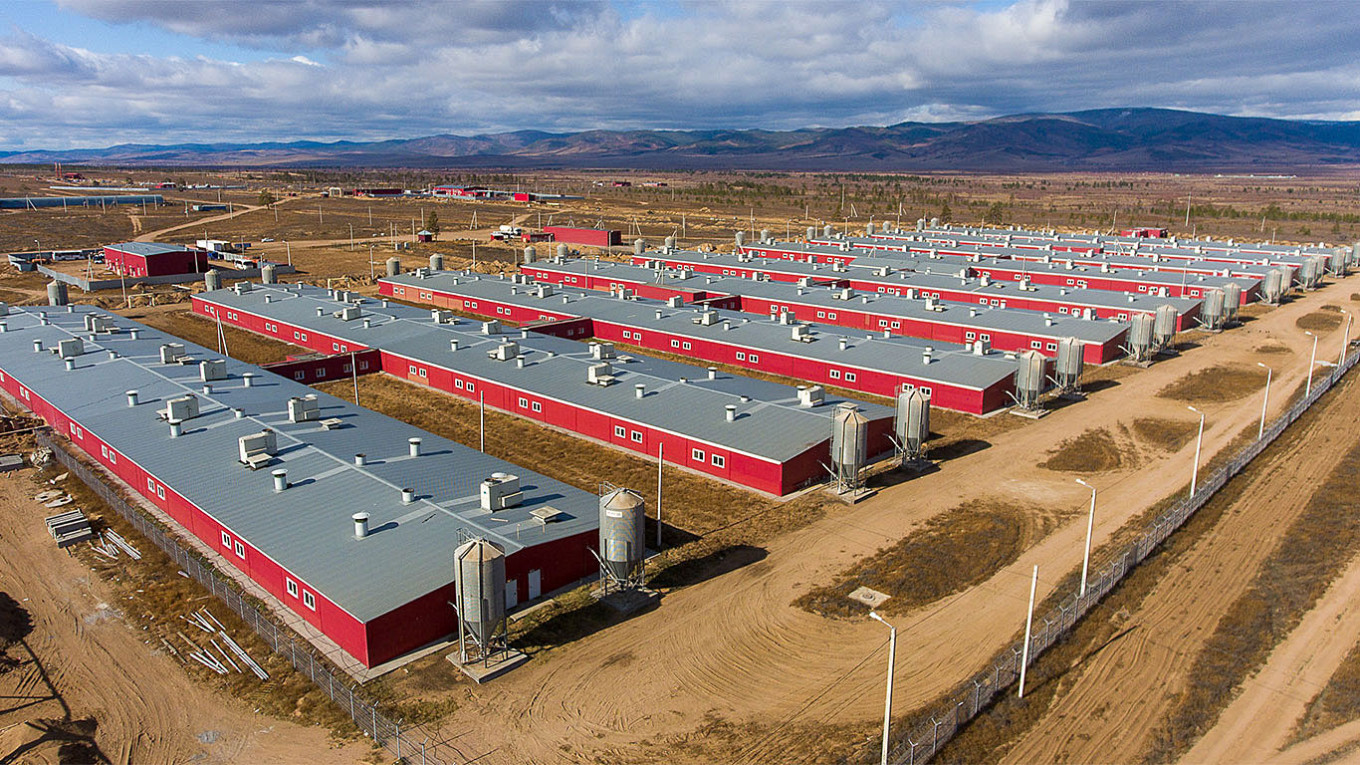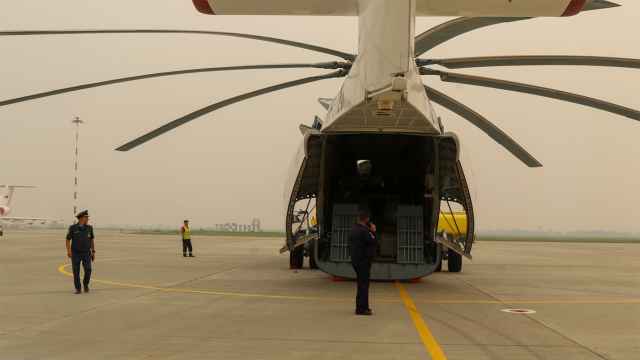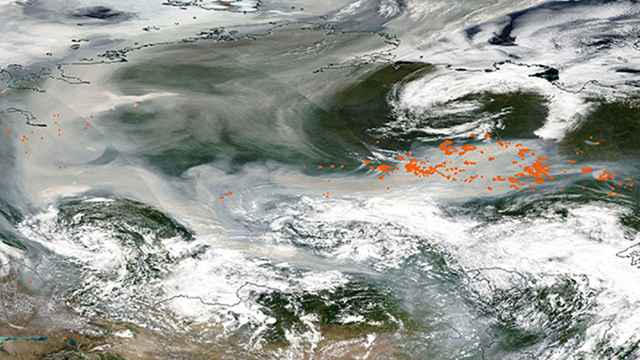A pork plant in Russia’s republic of Buryatia is expected to come under federal investigation after a manure storage pit burst, sending mass amounts of animal waste flowing into local waterways and threatening an “environmental disaster.”
On Oct. 12, a malfunction at the East Siberian pork facility caused huge amounts of manure waste to flow into the Uda, a local stream that feeds into the Selenga River, which in turn flows into Lake Baikal, the world's largest body of fresh water and a UNESCO World Heritage Site.
Russia’s Investigative Committee has ordered a criminal investigation into the manure storage burst at the pork plant, which is owned by meat producer Sibagro, media reported Tuesday.
Though regional prosecutors reported that the manure leak had been fixed three days after the incident, workers initially tried to cover up traces of the accident and blamed the weather for the breach.
“The organization's employees attempted to conceal the contamination, and the mentioned rivers are a source of drinking water for nearby settlements,” the Investigative Committee, which probes major crimes, said on its Telegram channel on Monday. “Local residents fear that this could lead to an environmental disaster.”
The federal body's response comes after the accident near the village of Ust-Bryan grabbed the attention of activists and the media.
"The sight of the water now only evokes nauseating impulses, and the stench is absolutely appalling,” an anonymous activist told local media shortly after the accident.
“When I arrived on the scene ... several people were already running toward me, asking why I was there and what I was filming,” the activist said. “They didn't introduce themselves but explained that it happened after the rain. To which I reasonably asked: 'But was there rain yesterday?' The answer surprised me no less: 'We've had rains all summer, so we're fixing it!'”
Manure storage facilities in Russia are notoriously problematic due to the fact that many were built using outdated technologies, an environmental expert who requested anonymity in order to speak candidly told The Moscow Times.
“According to the current manual on the best available practices for pork and poultry farming, livestock waste in Russia can still be stored in large manure pits,” the expert said.
“But this year, the manual is expected to be updated,” they continued. “If updated correctly, such pits should be prohibited, leaving only ... composting and biogas production [as recommended waste processing methods].”
A Message from The Moscow Times:
Dear readers,
We are facing unprecedented challenges. Russia's Prosecutor General's Office has designated The Moscow Times as an "undesirable" organization, criminalizing our work and putting our staff at risk of prosecution. This follows our earlier unjust labeling as a "foreign agent."
These actions are direct attempts to silence independent journalism in Russia. The authorities claim our work "discredits the decisions of the Russian leadership." We see things differently: we strive to provide accurate, unbiased reporting on Russia.
We, the journalists of The Moscow Times, refuse to be silenced. But to continue our work, we need your help.
Your support, no matter how small, makes a world of difference. If you can, please support us monthly starting from just $2. It's quick to set up, and every contribution makes a significant impact.
By supporting The Moscow Times, you're defending open, independent journalism in the face of repression. Thank you for standing with us.
Remind me later.






